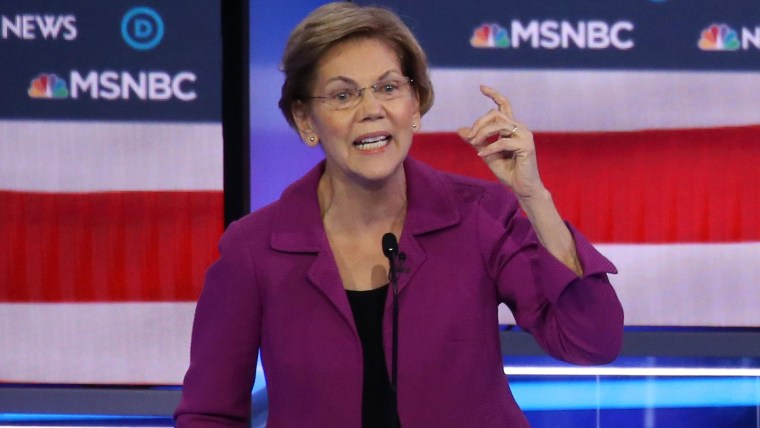WASHINGTON — Senate Majority Leader Mitch McConnell has a message for Democrats: Don’t end the legislative filibuster if you win control, or you’ll regret it.
“The important thing for our Democratic friends to remember is you may not be in total control in the future. And any time you start fiddling around with the rules of the Senate you always need to put yourself in the other fellow’s shoes and just imagine what might happen when the winds shift,” the Kentucky Republican told reporters on Tuesday.
McConnell called on “responsible Democratic senators” not to be “stampeded by the hard left” and preserve “the one institution that guaranteed that America stayed in the middle of the road.”
McConnell’s remarks come as Democrats debate among themselves whether to preserve the super-majority requirement to pass legislation if they win control of the White House and Congress this fall and their agenda is obstructed. Numerous progressive activists, as well as former Senate Majority Leader Harry Reid, D-Nev., support its abolition.
Democrats who favor the change, including potential vice presidential contender Sen. Elizabeth Warren, D-Mass., say the 60-vote rule gives a minority of senators a permanent veto that makes progressive governance impossible, particularly given the structure of the Senate that gives small red states like Idaho and Wyoming the same representation as large blue states like California and New York.
“If Mitch McConnell is going to do to the next Democratic president what he did to President Obama, and that is try to block every single thing he does, then we are going to roll back the filibuster,” Warren said during a presidential primary debate in late February.
But other Democrats like the power it affords them to shape and block legislation while in the minority, with some of them holding more centrist views, such as Sen. Kyrsten Sinema, D-Ariz., and Sen. Joe Manchin, D-W.V.
The debate was reignited recently after Sen. Chris Coons, D-Del., a moderate ally of Biden who has supported the filibuster, told Politico he’s open to abolishing it. “I will not stand idly by for four years and watch the Biden administration’s initiatives blocked at every turn,” he said.
A Biden campaign spokesman didn’t immediately return a request for comment on whether he would support or oppose a Democratic effort to abolish the 60-vote threshold for legislation.
The filibuster is a Senate rule that came about by historical accident as rule changes in the early 1800s deprived the majority party of a way to cut off debate. It was rarely used for generations and came to the fore in the mid-1950s when Southern senators used it to filibuster civil rights legislation. Under President Barack Obama, McConnell, then the minority leader, ramped up its use to block or scale back parts of his agenda.
Achieving “cloture” initially required unanimous consent. In 1917, it was cut to 67 votes. The last time it changed was 1975, requiring 60 votes to end debate. It is not a Constitutional requirement and can be changed with 51 votes in the Senate.
McConnell did, however, defend the elimination of the filibuster for judicial and executive appointments, saying the 60-vote threshold to confirm nominees has been “a very recent phenomenon” dating back to the George W. Bush presidency.
“So that’s not really a revolution,” he said. “What would be a revolution — and turn the Senate into the House — would be to change the legislative filibuster.”
Adam Jentleson, who served as a spokesman for Reid, rejected McConnell’s characterization of the filibuster as a tool to promote moderation.
“It was invented to allow a minority of white conservatives impose their will on a changing country, and that is the purpose it serves today,” he wrote on Twitter.













